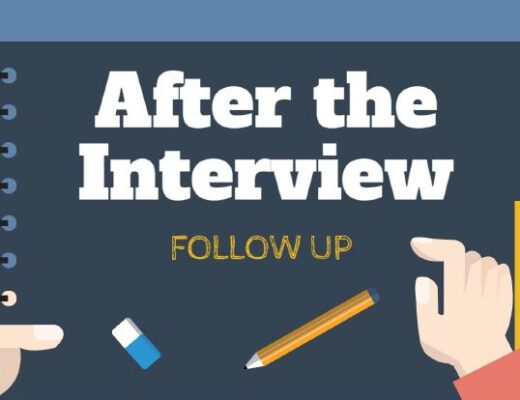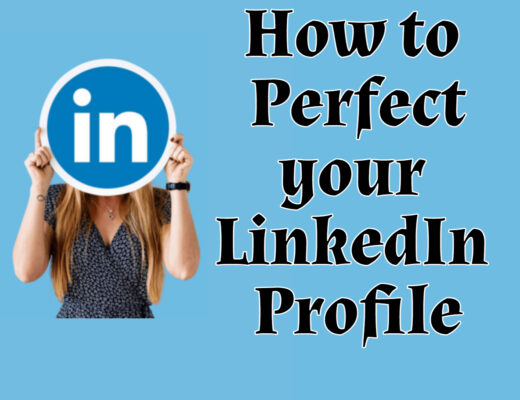Having a strong resume is setting your first step towards your job hunt. An appealing resume would help you get that interview call for your dream job. Cracking down that interview is the most crucial step, your answers to the questions asked during the interview decide whether you get the job or not. It’s important to put your best foot forward. This article is like a Bible for job seekers.
We bring you 15 common questions asked in an interview and the Do’s and Don’ts while answering them. But before we go down to those 15 questions, it’s important to know the basic format of the interview questions.
In general, there are 3 basic formats:
- Behavioral questions: The most classic example of a behavioral question is tell me about your strengths and weaknesses or tell me something about yourself. Questions like these showcase your skills & knowledge and give an overview of your future in the company.
- Situational Questions: Answering these questions showcase your problem-solving ability, analytical skills, and planning ability. Here the interviewer wants to see how would you react in certain situations, questions like how would you complete a given task or are you willing to relocate are some examples of situational questions
- Resume Questions: These questions are related to the information given in your resume, it’s easy to prepare for such questions. Here you have an edge over the interview.
It’s important to identify the behavioral questions and situational questions, this would make the process of answering questions correctly easier for you.
Frequently asked questions
Q. 1 Tell me something about yourself
Ans. The most common question asked, mostly the 1st question asked.
Don’t: Give a detailed overview of your past career, don’t line by line your resume, the interviewer has gone through it already.
Do: Give honest and engaging answers, give answers that provide direct evidence proving you are qualified for the role, showcase your skills that are directly aligned to the required skills.
Q.2 Tell me about your strengths
Ans. The interviewer wants to discover your core competencies.
Don’t: Give unrealistic or fake answers, as the question may be followed by “give me an example of how you used your strengths in a situation.”
Do: Identify your personal traits that match with the job description, choose suitable examples to support these strengths.
Q.3: Tell me about your weaknesses
Ans: Just like your strengths, the interviewer wants to know your weaknesses too in order to have a realistic view of your competencies.
Don’t: Go all out and honestly blabber out all your weaknesses
Do: Analyze the job description and determine the qualities you don’t have, pickup points that are least important to the job role and you can learn quickly. It’s not possible to have 100% of all the qualities mentioned in the job description, hence showing your employer what you lack and your willingness to learn may work in your favor.
Q.4: What makes you apply to our company?
Ans: The interviewer wants to know about your long term goals in the company and your knowledge about the position.
Don’t: Talk about the product of the company and your liking towards it.
Do: Talk about how you feel the company will allow you to use your focus on innovative approaches, and in turn help in adding value to the company
Q.5: Why did you quit your previous job?
Ans: The interviewer wants to know if you have valid reasoning for your decisions.
Don’t: Talk about the negative experiences in your previous job or bad experiences with your boss.
Do: Let the interviewer know you are leaving your previous job for better opportunities and to experience growth in your career with them. But if you were fired from your previous job, it may be unavailable to include your negative experiences with your previous company, don’t avoid the question instead let them know what was in your previous job. For example: if you had a bad boss, you could say, “the company was great, but my boss didn’t have the time to give me the support needed to enhance my skills”.
Q.6: Are you willing to relocate or travel?
Ans: This may be a preference for the job that you are looking for, or your interviewer wants to know your flexibility for future career opportunities.
Don’t: Say things like “for the right opportunity, I could consider relocating” this shows you are not quite willing or are not sure about it.
Do: Be sincere in your answer, if you are not willing to relocate. Be honest with a valid reason. Rather than jumping with a “Yes”, ask them a few questions like “what career growth is expected with relocation” or “What would be the duration of stay at each project”.
This will show your interest in the position and your future in the company.
Q.7: Give me an example of handling a difficult situation.
Ans: This is a classic example of a behavioral-based question. The interviewer wants to know what difficulty really means to you and wants to know your problem solving and analytical skills.
Don’t: Talk about any negative issues or difficulties in your old company, also avoid talking ill about your ex co-workers.
Do: Talk about overcoming situations through teamwork and taking an initiative in solving problems effectively.
Q.8: What would you like to accomplish in the first month of your new job?
Ans: The interviewer not only wants to know about your professional past but is also interested in knowing how you will perform in the future.
Don’t: Talk in detail about the negative aspects of the company.
Do: Highlight what’s good about the company and the areas that need improvement, give valid reasons for the improvement needed and how you could add value in the job role by bringing some positive changes in the initial stages.
Q.9: How did you handle any disagreement with your ex-boss/ Co-workers?
Ans: The interviewer wants to see how you deal with people around you at the workplace.
Don’t: Reply by saying ” I never had a disagreement with my old boss/ co-workers”, that would be a big fat lie, as when people work closely together, the difference of opinion and approach to handling any problem may be different.
Do: Give examples of how you dealt with different viewpoints in the past. Give examples of a positive outcome, or how you learned something new from every situation.
Q.10: Why should we hire you?
Ans: Now is the time to sell your core competencies. Give your best.
Don’t: Sound Too Desperate, You Are Looking For A Job Not Begging.
Do: Pick 3-4 most important skills needed and align it with your strengths with valid examples to show why you qualify for the job. Share experiences that you bring to the table, this would be your greatest strength and your USP. Most importantly let them know that you would be a great cultural fit for the company, which means showcasing your team working skills.
Q.11: What would your co-workers say about you?
Ans: The interviewer wants to know your ability to work in larger teams and people’s liking towards you.
Don’t: Blow your own trumpet, they don’t want to know what you think of yourself instead of what others think of you.
Do: Be humble while answering this question. Share your best trait but with someone else’s lens. Try and frame your answers as per the qualities needed by the job you are interviewing for. For example- the job needs a problem solver, you could say your Co-workers called you Mr/ Miss Fixer because you were so good at solving challenging problems. Also, you could scan through your recommendation and reviews and gauge an answer from there.
Q.12: Can you explain your employment gap
Ans: Here comes the nerve-wracking question if you’ve had a gap know your career. The interviewer wants you to be honest here.
Don’t: Be nervous, they have called you for the interview. So the gap is not really the negative turning point!
Do: Be prepared for answering this question by being honest. Put the situation in the best light. Be confident and unapologetic about your decision. Show the positive impact that came out of your decision.
Q.13: Where do you see yourself in the next 5 years?
Ans: The interviewer wants to know your seriousness about the job role and your long-term goals.
Don’t: Focus on what you are looking to get out of the job and the employer.
Learning from a new job is a good thing, but the employer wants you to add value to the organization or the role.
Do: Show them how you would learn in the first year and thereafter bring value to the organization in the coming years.
Q.14: Tell us about the time you surpassed expectations
Ans: The interviewer wants to know if you have the ability to outshine and stretch your skills.
Don’t: Give fake replies. If you have not had a chance to exceed expectations, honestly reply by saying “I haven’t got the chance to do so, but I am excited to prove myself and won’t shy away when I have an opportunity to do so”. Also, avoid talking only about achievements.
Do: Describe a situation and give examples. Back to your achievements with the hurdles faced to reach your goal and the efforts taken to achieve it. Show how the situation helped you grow by highlighting your strengths with appropriate examples.
Q.15: Do you have any questions?
Ans: This is a critical end to your interview. The interviewer wants to see how intelligent and engaged you are and your keenness in the job role.
Don’t: Reply by saying a plain “No”. This only proves that you are disinterested in the job.
Do: Reply with a “Yes”. This gives you an opportunity to end on a strong note. Show them your passion for their product and ask them something about the product line you like the most. You may also ask questions about organization structure to show your interest.
Interviews are the bridge between you and your dream job. Hence it is very important to answer the questions with as much precision as positive. There is a treasure of questions you can prepare upon. Seeking professional guidance is one way to be best prepared for that bridging interview.
Being prepared and trained could be your biggest USP to get the job of your dreams.




